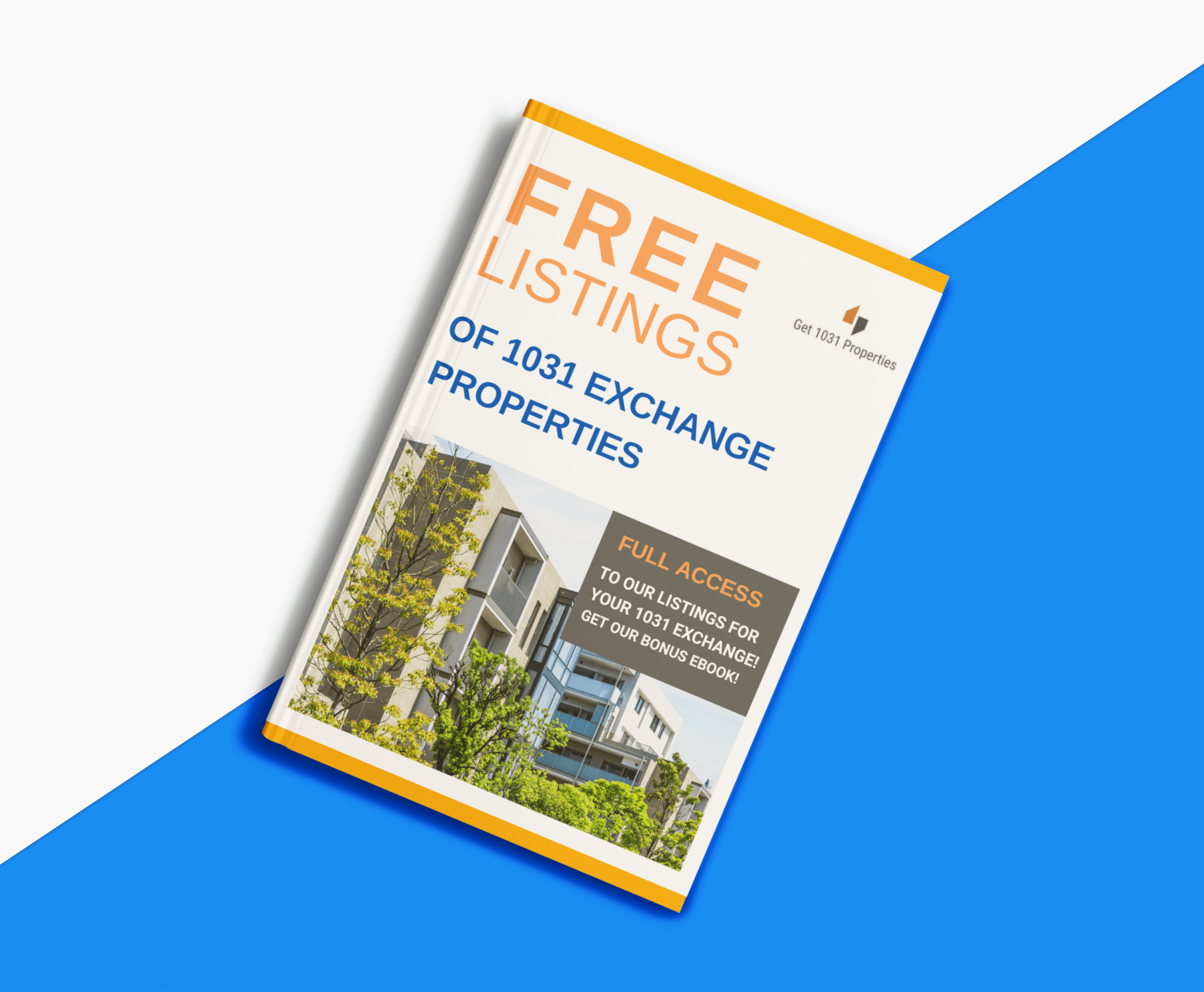1031 Exchange Portfolio Solutions
We Are The Experienced Choice.
We Are The Experienced Choice.
SOLUTIONS FOR YOUR INVESTMENT GOALS
With over 10+ years of experience facilitating 1031 Exchanges, we are Silicon Valley's trusted partners in helping you create customized portfolios that meet your objectives . We believe that education, transparency, and service matter, and we are committed to providing our clients with the resources required to facilitate the entire exchange process.
Amit Urban
I grew up in a family of real estate professionals and early on I saw how smart investing has helped people generate wealth and free them to live the way they dreamed. Now, as a real estate professional for over ten years, I work with local rental property owners and investors to help them maximize their returns, guide them through regulations, and build the plan to achieve the lifestyle they’ve desired.
Navigating the complexity of a 1031 Exchange
can be a real burden and leave you unsure if your investment will lead to the future you imagine. Too often people lack the right information, struggle to find replacement properties, or aren’t able to fully capitalize on their existing assets. I look forward to helping my clients use their real estate portfolios to meet their life goals.
I am a licensed Real Estate Broker in the State of California and have successfully obtained his Series 22 (Direct Participation) and 63 (Uniform Securities Agent State Law) securities licenses. I graduated from the University of California, Los Angeles and speak Chinese and Hebrew.
KNOW YOUR OPTIONS.
Instead of remaining uncertain and stuck with the three T's: toilets, trash and tenants, missing out on potentially more income, and potentially destroying wealth on unforeseen tax consequences or high unnecessary fees, reach out to schedule your free consultation. We have help our clients:
☑️ Eliminate The Headache Of Your Rental Property
☑️ Have Confidence In Your Investment Strategy
☑️ Real Estate Portfolio That Works For You
☑️ Potentially Increase Your Cash-Flow
☑️ Regain Control Of Your Schedule
☑️ Meet Your 1031 Exchange Deadlines
☑️ Avoid Paying Unnecessary Tax Penalties
☑️ Get Time And Energy Back
☑️ Freedom And Movement To Do What You Want.
LATEST NEWS AND INVESTOR INFORMATION

Just because an investment is fundamentally sound or offers a positive return, doesn’t necessarily make it a good one. There’s an element of “fit” that must be considered any time a potential investment is evaluated. From time horizon to risk tolerance, return expectations, and income requirements, every investor has different needs, and the key to finding a good investment is to find one that meets most or all of those needs. For a certain segment of the investing public, an investment in a Delaware Statutory Trust has the potential to be a good fit and is worthy of consideration. What is a DST? A Delaware Statutory Trust is a “legally recognized entity that is set up for the purpose of conducting business. They are formed using a private trust agreement under which real property is held, managed, invested, administered, and/or operated for the purpose of profit.” Translated casually, a DST is a corporate entity, set up for the purpose of acquiring a specific real estate asset. Potential investors purchase shares in the entity, which entitle them to a proportionate share of the potential cash flow and profits produced by the underlying asset. Pros and Cons of Investing in a DST Like any investment, there are pros and cons to consider when evaluating a DST opportunity. On the positive side, DSTs provide individual investors with a passive investment opportunity in institutional quality assets that they wouldn’t otherwise be able to invest in. It’s passive because the properties are managed by institutional-quality property management with significant experience and a favorable track record. Additionally, DSTs are available in all asset classes, including some of the most popular ones like multifamily, industrial, and office and they can be used as a useful estate planning tool. Lastly, and maybe most importantly, DSTs can provide significant tax benefits when purchased in conjunction with a 1031 exchange . While the DST benefits are impressive, there are some downsides to consider. To start, DSTs are illiquid. They require a holding period of 5-10 years and the market can change significantly over that time. In addition, DST’s can’t raise new capital once they’re closed, which means that: (1) the properties require higher than usual reserves; and (2) an unexpectedly large capital expenditure like a new roof can erode years of profits. Further, DST investors have no say in property management decisions. They’re passive investors only and will almost certainly come out on the losing side of a dispute with the property manager. As these are just some of the cons to consider, investors should ensure they are familiar with all risks before investing. Between the pros and cons, there’s a lot to consider, which brings us back to the idea of “fit.” What Types of Investors are DST s a Good Fit For? Generally speaking, an investment in a DST may be a good fit for an individual that falls into one or more of the following categories: 1. Individuals seeking to be passively involved with their investment 2. Individuals looking for exposure to institutional quality assets with professional management 3. Individuals who have experienced a recent gain on the sale of an asset and are looking to defer the gain from taxes 4. Income investors with a 5-10 year time horizon Who are these individuals? For the most part, they may be, but are not limited to, business owners, successful investors, executives, doctors, lawyers, and accountants who tend to be a little bit older and established in their careers. Do You Think a DST Might be a Good Fit for You? I specialize in helping my clients identify and select real estate investments, including DSTs, that are suitable for their risk tolerance and time horizon. I’d like to invite you to set an appointment or to attend our next seminar. You can do so by calling me at 650-282-0477 or by sending an email to amit@get1031properties.com I look forward to hearing from you. This is for informational purposed only and does not constitute an offer to buy or sell any securitized real estate investments. There are risks associated with investing in Delaware Statutory Trust (DST) and real estate investment properties including, but not limited to, loss of entire principal, declining market value, tenant vacancies and illiquidity. Diversification does not guarantee profits or guarantee protection against losses. Potential cash flows/returns/appreciation are not guaranteed and could be lower than anticipated. DST 1031 properties are only available to accredited investors (typically have a $1 million net worth excluding primary residence or $200,000 income individually/$300,000 jointly of the last three years) and accredited entities only. If you are unsure if you are an accredited investor and/or an accredited entity please verify with your CPA and Attorney. Because investors situations and objectives vary this information is not intended to indicate suitability for any particular investor. This information is not meant to be interpreted as tax or legal advice. Please speak with your legal and tax advisers for guidance regarding your particular situation. Securities offered through Concorde Investment Services, LLC (CIS), member FINRA/SIPC.

Many Bay Area real estate investors I speak with tell me, "Amit, I want to sell my investment property, but where would I exchange my proceeds into?" I've been working with real estate investors for many years, and I understand their dilemma. Where can Bay Area real estate investors find properties that provide more cash flow potential and aren't management-intensive within the dreaded 45-day identification period that goes by far too fast? To help navigate the identification process and understand which properties are eligible and meet your investment and lifestyle goals, real estate investors should keep their options open. Think broadly when considering a property for your 1031 exchange . Fortunately, the IRS doesn't consider "like-kind property" to be nearly as restrictive as it sounds. Investors can select from apartment buildings, industrial properties, office buildings, shopping centers, single-family home rentals, Delaware Statutory Trusts , and Single Tenant Net Leased Properties, for example. Each property type has its unique advantages and disadvantages. From an investment standpoint, they may seem like they're from different universes. When it comes to 1031 Exchanges, there's no requirement that a single-family rental property must be exchanged for another single-family home. Instead, an investor can trade a single-family home for an apartment building, raw land, or a Delaware Statutory Trust. Investors may have their sights set on a particular property type when commencing the sale of their investment property, but I believe this is an excellent opportunity to broaden your horizons and dig deeper into different types of property to diversify your portfolio. For 1031 exchange reinvestment, the IRS has laid out specific guidelines on which properties you can consider. First and foremost, your primary residence cannot be used for 1031 exchange reinvestment (unless you convert your property into a rental property - download 5-Steps to convert your primary home to a rental property for maximum tax benefits ). Only properties used for business or investment qualify as "like-kind" for 1031 exchange. There are four things to consider when identifying replacement property: Personal Time • Do investors want properties that provide more margin in their personal life, such as more time with family, traveling or other goals? • Are there parts of managing rental properties that owners enjoy or don't enjoy? Such as value-add projects, tenant relationships, routine maintenance, and/or management? Regulation • Where do property owners anticipate housing regulations to be in the next one or two years? • What is currently proposed in the state your property is located? And how do these new laws affect property owners' ability to effectively manage their property while meeting their income and lifestyle goals? Risk • What is the property owner's investment risk and how has it changed? • Is all the equity tied up in one property, geography, or asset-class? • How do rental property owners view liability risk (e.g. tenant risk, lawsuit risk, etc.) associated with our current rental property portfolio? • How do we mitigate the risk? Income • How much income is the property currently earning, and how much would the owner like to own in order to maintain their lifestyle? • Are there any anticipated changes for more income in the future? Key takeaways The 1031 exchange is a tool used by savvy real estate investors to take full advantage of the tax code, leverage, and potential cash flow benefits that investment real estate may provide. Because the execution and nuances of 1031 exchanges can get quite complex, investors new to real estate or the like-kind exchange process should contact qualified tax and real estate professionals to be sure an exchange is properly executed. Are you interested in learning more? I specialize in helping my clients identify and select DSTs suitable for their risk tolerance and time horizon. If you are interested in learning more about DST investment opportunities , I'd like to invite you to set an appointment or attend our next webinar. You can do so by calling me at 650-282-0477 or by sending an email to amit@get1031properties.com. This is for informational purposed only and does not constitute an offer to buy or sell any securitized real estate investments. There are material risks associated with investing in real estate securities including liquidity, tenant vacancies, general market conditions and competition, lack of operating history, interest rate risks, the risk of new supply coming to market and softening rental rates, general risks of owning/operating commercial and multifamily properties, short term leases associated with multi-family properties, financing risks, potential adverse tax consequences, general economic risks, development risks, long hold periods, and potential loss of the entire investment principal. Diversification does not guarantee profits or guarantee protection against losses. Potential cash flows/returns/appreciation are not guaranteed and could be lower than anticipated. Because investors situations and objectives vary this information is not intended to indicate suitability for any particular investor. This information is not meant to be interpreted as tax or legal advice. Please speak with your legal and tax advisors for guidance regarding your particular situation. Securities offered through Concorde Investment Services, LLC (CIS), member FINRA/SIPC. Get1031Properties is independent of CIS.








